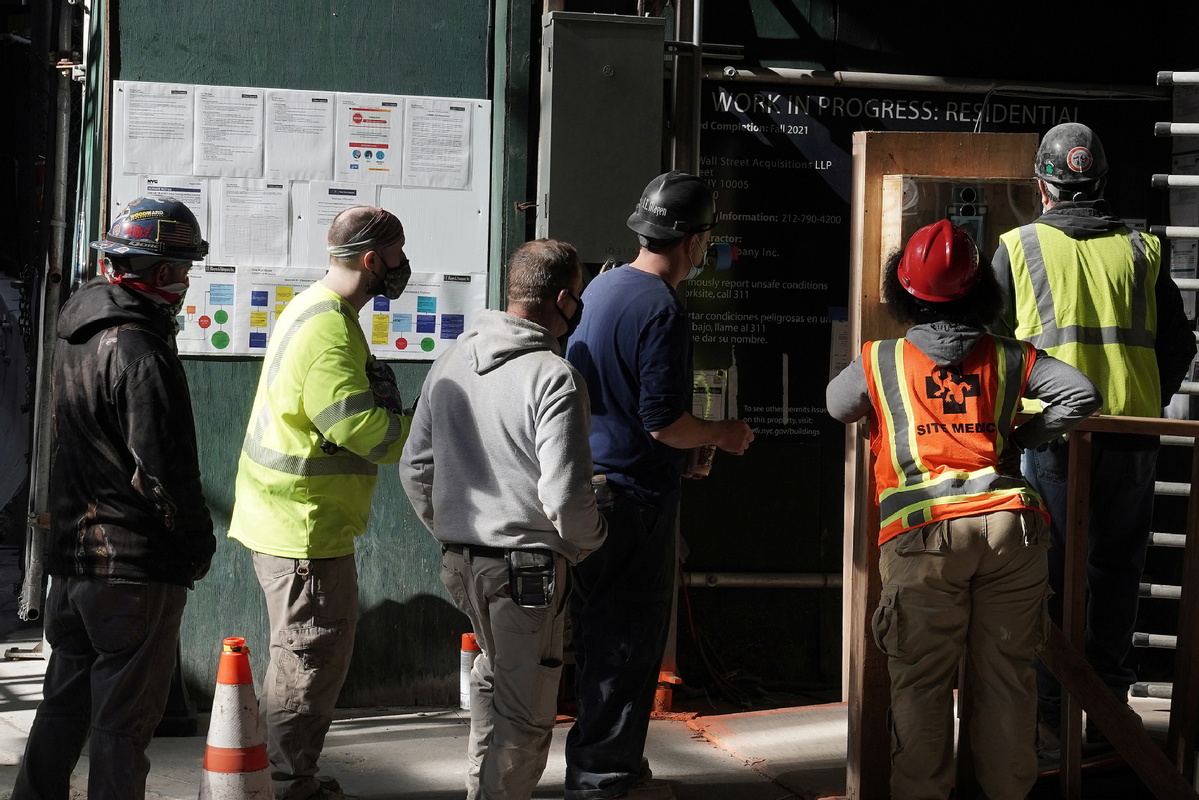New York on a high with tax ambitions
With recreational cannabis legalized, US state counts on revenue, job windfalls
By MINLU ZHANG in New York | China Daily | Updated: 2021-04-05 10:01

New York is looking ahead to the prospect of creating thousands of jobs and generating millions of dollars in sales taxes after it became the latest US state to legalize the recreational use of cannabis.
The Empire State last week became the 15th state to fully legalize the use of the drug by adults for recreation.
The state expects that legal marijuana sales for those aged 21 and older will begin in about a year as it issues cannabis business licenses while preparing to enforce a lengthy list of new marijuana statutes. Smoking marijuana will be legal wherever smoking tobacco is allowed. Users will be allowed to possess up to 3 ounces (85 grams) of the drug.
Retail sales of marijuana would be subject to a 9 percent state tax and a 4 percent local tax.
Though estimates vary, all sales estimates point to huge tax revenue and thousands of new jobs.
Governor Andrew Cuomo's office said sales of marijuana are expected to generate $350 million in tax revenue annually and potentially create 30,000 to 60,000 jobs. Sales could reach $1.2 billion as early as 2023 and $4.2 billion by 2027, according to advisory firm MPG Consulting. The sales would generate an average of $573 million in tax revenue over the first five years. MPG expects the industry to employ around 21,000 people within two years and more than 75,000 in six years.
Beyond the expected tax revenues and new jobs, supporters of legalization point to its impact on communities heavily populated by minorities. When Cuomo, a Democrat, signed the legislation passed by the Democratic-controlled state legislature on Wednesday, he said it was also about "justice for long-marginalized communities and ensuring those who've been unfairly penalized in the past will now get a chance to benefit".
The legislation will erase records for thousands of people with past marijuana-related convictions. People of color represented 94 percent of marijuana arrests in 2020, according to data from the New York City Police Department.
To support communities disproportionately affected by the war on drugs, 40 percent of most tax revenues would be reinvested in Latino and black communities. The deal also includes "equity programs" that would provide loans, grants and incubator programs for small farmers and people from disproportionately impacted communities who want to enter the industry.
Public education would receive 40 percent of the tax revenues and the remaining 20 percent would go toward drug treatment, prevention and education.
The drug's legalization was approved despite opposition from the state Parent Teacher Association, or PTA, and law enforcement organizations. It was also opposed by the Medical Society of the State of New York, which represents doctors, and raised concerns about the need for additional research into marijuana's effects on physical and mental health.
"We don't think this is going to solve much of the societal and social justice issues," Kyle Belokopitsky, executive director of the New York State PTA said in a television interview. "In every other state that's passed, even though it's 21 and older, children have had greater access, a huge increase in things like hospitalization and accidental ingestion."
According to a study published by the American Academy of Pediatrics, poison center calls associated with children's unintentional exposure to cannabis have increased in the US from 2017 to 2019, largely as a result of the accidental consumption of edible cannabis products.
"We are seeing these edible exposures more and more often in younger kids. They come in completely sedated after getting into brownies at a party or getting into edibles that belong to their teenage siblings," said Payal Sud, a medical toxicologist and associate chair of the emergency department at Glen Cove Hospital.
























